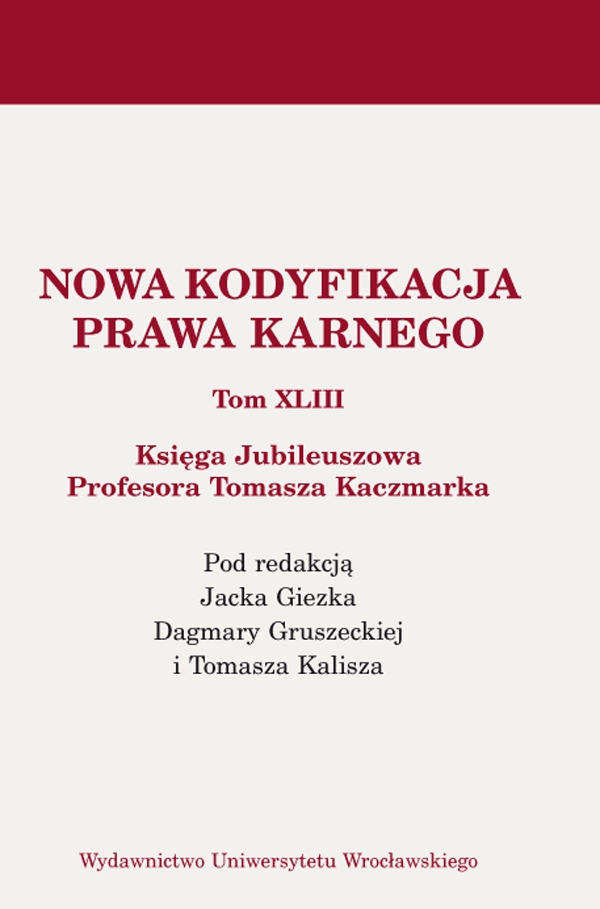

Artykuły

The ordinary and extraordinarily mitigated imposition of penalty under Criminal Code following the revision of 20 February 2015
The paper demonstrates the penal law consequences of making changes to the provisions of Art. 58 § 1, repealing Art. 58 § 3 and instead adding Art. 37a and Art. 37b to the Criminal Code of 1997 effected through the revision dated 20 February 2015 Journal of Laws item 396. The author points out that the intention to modify the policy followed by courts in their judicial decisions, most notably to significantly reduce the number of cases with sentences imposing penalty of deprivation of liberty, with a conditional suspension of its enforcement disturbs the logic of the system of sanctions on which the Criminal Code was based along with the entire system of criminal law to which the Criminal Code applies. Furthermore, the difference between the ordinary imposition of penalty and the extraordinarily mitigated imposition of penalty has been blurred, with the latter to be applied only when there are special grounds for such measures, which means only in exceptional situations meriting an extraordinarily mitigated consideration, which is not required when ruling the ordinary imposition of penalty.
The paper also disputes the arguments according to which the provision of Art. 37a of the Criminal Code supplements simple sanctions providing only for imposition of deprivation of liberty with non-custodial alternative penalties such as fine or limitation of liberty. Criticism is also expressed with regard to the proposed reduction of the lowest penalty of deprivation of liberty from one month to one week.
The paper calls for repealing Art. 37a of the Criminal Code and reviving the imposition of penalty stipulated in the repealed Art. 58 § 3 of the Criminal Code, however without the preference included there concerning the additional imposition of a penal measure. It is also pointed out that it is high time to carry out a thorough revision of the penal sanctions for all kinds of crimes stipulated in the Polish legal order with the author naming a number of specific suggestions in this respect.